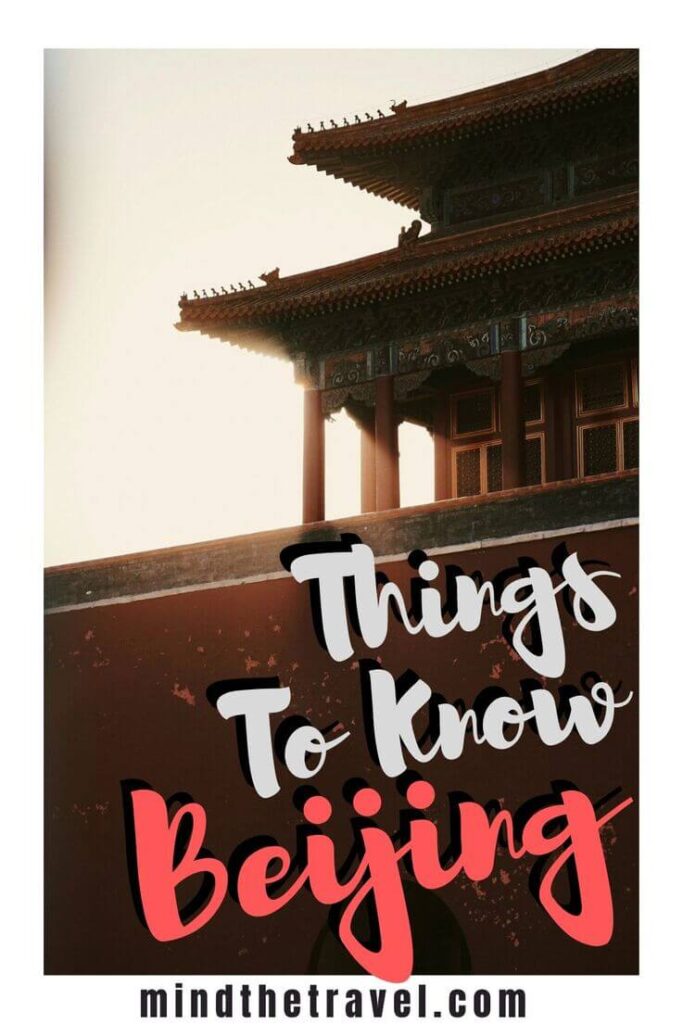South African's Guide to Visiting China: Must-Knows
Introduction
Overview of the South African's Guide to Visiting China
As a South African traveller preparing to embark on a journey to China, it's essential to equip yourself with the right information to ensure a smooth and enjoyable experience in this culturally rich country. Understanding the nuances of Chinese customs, language, transportation, and more can greatly enhance your visit. Let's delve into a comprehensive guide tailored to South African visitors exploring China.
Visa Requirements
Before diving into the details of your trip, the first step is to understand the visa requirements for South African citizens traveling to China. This crucial aspect involves obtaining the necessary documents and adhering to the correct processes to secure your Chinese visa.
Cultural Etiquette
Embarking on a journey to a new country means immersing yourself in its culture. Being aware of Chinese customs and traditions will not only show respect but also help you navigate social interactions smoothly during your stay.
Language Tips
While English is spoken in some tourist areas, having a basic understanding of Mandarin Chinese can significantly enhance your travel experience. Learning a few key phrases can go a long way in communication and cultural exchange. Stay tuned to uncover more detailed insights and tips for South African travellers venturing into the heart of China.

Visa Requirements
As a South African citizen planning to visit China, obtaining a Chinese visa is a fundamental step in ensuring hassle-free entry into the country. Here's a detailed guide to help you navigate the visa application process effectively.
Obtaining a Chinese Visa for South African Citizens
- Types of Visas: South African citizens typically need to apply for a tourist visa (L-visa) to visit China for leisure purposes. The application process can vary based on the type of visa you require.
- Application Process: You can apply for a Chinese visa through the Chinese Visa Application Service Centre (CVASC) or the Chinese embassy/consulate. Prepare to submit your passport, completed application form, recent photo, travel itinerary, proof of accommodation, and more.
- Processing Time: It's advisable to apply for your Chinese visa well in advance of your travel dates, as processing times may vary. Expedited services are available for urgent situations.
Important Documents and Processes
- Passport: Ensure your passport is valid for at least six months beyond your intended stay in China.
- Visa Application Form: Complete the visa application form accurately and truthfully to avoid delays or rejection.
- Supporting Documents: Prepare relevant documents such as flight itinerary, hotel bookings, financial proof, and a cover letter detailing the purpose of your visit to China.
- Visa Fees: Be aware of the visa fees and payment methods accepted for the visa application process.
By understanding the visa requirements and following the necessary procedures meticulously, South African travelers can embark on their journey to China with confidence.

Cultural Etiquette
Understanding and respecting the cultural norms and traditions of China is key to having a harmonious and enriching experience during your visit. Here are some essential insights into Chinese cultural etiquette to help South African travellers navigate social interactions effectively.
Customs and Traditions to Be Aware Of
- Greetings: Traditional greetings in China involve a slight bow or nod. Addressing individuals with their official title or surname followed by their first name is considered respectful.
- Dining Etiquette: When dining in China, wait for the host to initiate eating before starting your meal. Use chopsticks correctly and avoid sticking them upright in a bowl, as this is associated with funerals.
- Gift Giving: Present gifts to your hosts with both hands. Avoid giving items in sets of four, as the number four is associated with bad luck in Chinese culture.
Tips for Respectful Behavior in China
- Respect for Elders: In Chinese culture, respect for elders is highly valued. Use polite language and gestures when interacting with older individuals.
- Personal Space: Chinese people may stand closer during conversations than Western norms. Respect personal space boundaries while engaging in conversations.
- Public Behavior: Maintain a calm and composed demeanour in public spaces. Avoid confrontation or raising your voice in public settings.
By being mindful of these customs and adopting respectful behavior, South African travelers can forge positive connections and immerse themselves in the cultural tapestry of China.
Language Tips
When visiting China as a South African traveller, having a basic grasp of Mandarin Chinese can greatly enhance your travel experience and interactions with locals. Here are some language tips to help you navigate linguistic challenges during your stay in China.
Basics of Mandarin Chinese for Travelers
- Greetings: Learn essential greetings such as "ni hao" (hello) and "xie xie" (thank you) to initiate conversations on a positive note.
- Numbers and Directions: Familiarize yourself with numbers and basic directions to facilitate communication in situations such as ordering food or asking for directions.
- Common Phrases: Mastering phrases like "zai jian" (goodbye) and "qing wen" (excuse me) can assist you in various daily interactions.
Useful Phrases and Translations
- Restaurant Phrases: Practice ordering dishes with phrases like "Wo yao zhege" (I want this) or "zhege duo shao qian" (how much is this).
- Transportation Terms: Learn transportation-related phrases like "wo yao da dian che" (I want to take the tram) to ease your navigation through the city.
- Emergency Expressions: Be prepared with essential emergency phrases such as "jiuming" (help) or "wo shoule" (I am injured) in case of unforeseen situations.
By familiarizing yourself with these language essentials and embracing the opportunity to communicate in Mandarin Chinese, you can bridge cultural gaps and create meaningful connections during your travels in China.

Transportation
Efficient transportation is essential for South African travellers exploring China's bustling cities and charming landscapes. Understanding the intricacies of public transport systems and taxi services can significantly enhance your mobility and overall travel experience in China.
Navigating Public Transport in China
- Metro Systems: Major cities like Beijing, Shanghai, and Guangzhou boast extensive metro networks that offer a convenient and cost-effective way to navigate the urban sprawl. Familiarize yourself with metro maps and ticketing systems for seamless journeys.
- Bus Services: Public buses are a common mode of transport in China, providing access to various parts of the city. Look out for route information at bus stops and consider using mobile apps for real-time bus schedules.
- Train Travel: High-speed trains connect major cities in China, offering a speedy and comfortable mode of intercity travel. Book train tickets in advance to secure your seat during peak travel seasons.
Hiring Taxis and Getting Around Major Cities
- Flagging Taxis: Taxis are readily available in urban areas, and hailing one is as simple as raising your hand. Ensure the taxi meter is running and clarify the destination with the driver before setting off.
- Ridesharing Apps: Consider using ridesharing apps like DiDi for convenient and cashless taxi services in Chinese cities. These apps provide fare estimates and allow for easy communication with drivers.
- Walking and Cycling: Exploring on foot or renting a bike can offer a more immersive experience of the city's sights and sounds, especially in areas with pedestrian-friendly streets.
By mastering the art of navigating public transport and utilizing taxi services effectively, South African travelers can traverse China with ease and efficiency, unlocking the wonders of this diverse country.
Currency and Payments
Having a solid grasp of the Chinese currency and payment systems is crucial for South African travellers venturing into China. From understanding the intricacies of the Chinese Yuan to navigating payment methods and currency exchange, here's a comprehensive guide to help you manage your finances effectively during your stay.
Understanding Chinese Yuan
- Currency Basics: The official currency of China is the Chinese Yuan, symbolized as CNY or RMB. Familiarize yourself with the denominations of Yuan notes and coins to handle transactions seamlessly.
- Exchange Rates: Keep abreast of the current exchange rates between the South African Rand and the Chinese Yuan to make informed financial decisions during your trip.
- ATM Withdrawals: ATMs are widely available in major Chinese cities, allowing you to withdraw Chinese Yuan using your South African debit or credit card. Be mindful of any withdrawal fees that may apply.
Payment Methods and Currency Exchange
- Cash vs. Cards: While cash is widely accepted in China, major hotels, restaurants, and shops may also accept credit cards, particularly in urban areas. Carry a mix of cash and cards for flexibility.
- Currency Exchange: Exchange South African Rand for Chinese Yuan at authorized exchange bureaus or banks to secure competitive rates. Avoid exchanging money at unlicensed outlets to prevent scams.
- Mobile Payment Apps: Embrace the convenience of popular mobile payment apps like WeChat Pay and Alipay, which are widely used for transactions ranging from shopping to dining in China.
By familiarizing themselves with the nuances of the Chinese currency, payment options, and exchange procedures, South African travellers can navigate the financial landscape of China with confidence and ease.

Safety and Health
Ensuring your safety and well-being is paramount when travelling as a South African visitor in China. Familiarizing yourself with travel advisories, taking necessary precautions, and understanding healthcare facilities and insurance options are vital components of a smooth and secure travel experience.
Travel Advisories and Precautions
- Government Advice: Stay updated on travel advisories issued by the South African government regarding safety and security in China. Register with the South African embassy or consulate upon arrival for emergency assistance.
- Local Laws and Customs: Familiarize yourself with Chinese laws and cultural norms to avoid unintentional violations. Respect local customs, especially in religious sites and public areas.
- Personal Safety: Practice common sense safety measures such as safeguarding your belongings, staying alert in crowded areas, and using reputable transportation services.
Medical Facilities and Insurance in China
- Healthcare Quality: China boasts modern healthcare facilities in major cities, but standards may vary in rural areas. Research hospitals and clinics in advance, and carry essential medications with you.
- Medical Insurance: Consider purchasing travel insurance that covers medical expenses in China. Verify whether your policy includes evacuation coverage in case of emergencies.
- Emergency Services: Save contact details of reputable hospitals and medical service providers in China. In case of illness or injury, seek assistance promptly and notify your insurance provider.
Prioritizing your safety, staying informed about travel advisories, and securing adequate medical insurance are pivotal steps for South African travellers to safeguard their health and well-being while exploring the diverse landscapes and vibrant cities of China.

Communication and Connectivity
In today's digital age, staying connected is essential for South African travellers exploring the vast landscapes and dynamic cities of China. Understanding internet access options, acquiring local SIM cards, and employing smart connectivity strategies will enhance your travel experience and keep you linked to loved ones back home.
Internet Access and SIM Cards in China
- Wi-Fi Availability: Many hotels, restaurants, and cafes in China offer complimentary Wi-Fi access for patrons. Take advantage of these hotspots to stay connected while on the go.
- Local SIM Cards: Purchase a local Chinese SIM card to enjoy reliable data services and local calling rates. Visit authorized mobile service providers to acquire a SIM card compatible with your phone.
- Registration Requirements: Be prepared to provide identification, such as your passport, when purchasing a SIM card in China. Registration is a common procedure to comply with telecom regulations.
Staying Connected While Traveling
- Messaging Apps: Install popular messaging apps like WeChat for seamless communication with locals and fellow travellers. These apps also offer features like translation services and mobile payments.
- VPN Service: Access blocked websites and ensure online privacy by using a virtual private network (VPN) while in China. Install a trusted VPN app before your trip to bypass internet restrictions.
- Data Roaming: Check with your South African mobile provider regarding international data roaming packages. Alternatively, consider purchasing a global SIM card with data coverage for multiple destinations.
By optimizing their communication tools, utilizing local SIM cards, and leveraging connectivity solutions, South African travellers can bridge communication gaps and remain in touch with the world while embarking on their Chinese adventures.

Shopping and Bargaining
Exploring the vibrant shopping scene in China is an exciting experience for South African travellers seeking unique souvenirs and local treasures. From navigating bustling markets to honing your bargaining skills, here are essential tips to make the most of your shopping adventures while in China.
Tips for Shopping in Markets and Malls
- Market Exploration: Visit famous markets like the Silk Market in Beijing or Yuyuan Bazaar in Shanghai to discover a wide array of goods, from traditional handicrafts to modern electronics.
- Bargain Hunting: Engage in friendly haggling with vendors at markets to secure the best deals. Start by offering a lower price than the initial asking price, and be prepared to negotiate for a reasonable discount.
- Quality Check: Inspect the quality of items before making a purchase, especially when buying clothing, accessories, or electronics. Verify the authenticity of branded products to avoid counterfeit goods.
Negotiating Prices and Avoiding Scams
- Polite Negotiation: Approach price negotiations with a friendly and respectful attitude. Building rapport with the seller can lead to more favourable prices.
- Scam Awareness: Be cautious of scams such as counterfeit goods, inflated prices, or bait-and-switch tactics in touristy areas. Research typical prices for items of interest to avoid overpaying.
- Receipts and Refunds: Request receipts for your purchases, especially for high-value items. Familiarize yourself with the store's refund policy in case you need to return or exchange goods.
By mastering the art of shopping and bargaining in China, South African travellers can immerse themselves in the vibrant retail culture while obtaining authentic souvenirs and goods to commemorate their journey.

Food and Dining
Exploring Chinese cuisine is a culinary adventure that South African travellers cannot afford to miss during their journey through China. From delectable regional specialities to rich flavours and diverse cooking techniques, Chinese food offers a sensory experience like no other. Here's a guide to help you navigate the vibrant world of Chinese dining.
Introduction to Chinese Cuisine
- Regional Diversity: Chinese cuisine is incredibly diverse, with each region boasting its own unique culinary traditions and flavours. From spicy Sichuan dishes to delicate Cantonese dim sum, there is something to delight every palate.
- Key Ingredients: Staples like rice, noodles, soy sauce, and a myriad of vegetables and meats form the foundation of Chinese dishes. Embrace the aromatic spices and herbs that lend distinct tastes to Chinese cooking.
- Eating Customs: Embrace Chinese dining customs such as sharing dishes family-style at the table and using chopsticks for eating. Try new foods with an open mind and savour the communal aspect of Chinese meals.
Dietary Preferences and Navigating Menus
- Vegetarian Options: Vegetarian and vegan dishes are available in many Chinese restaurants. Look for dishes labelled as "su" (vegetarian) or inquire about meat-free alternatives.
- Menu Tips: Familiarize yourself with common menu items and their translations to navigate menus effectively. Ask for recommendations from restaurant staff or locals to discover hidden culinary gems.
- Allergies and Restrictions: Inform restaurant staff of any dietary restrictions or allergies you may have to ensure a safe dining experience. Be cautious of ingredients like peanuts or gluten that may be present in dishes.
By embracing the diversity of Chinese cuisine, understanding dietary preferences, and deciphering menu options, South African travellers can embark on a gastronomic journey through China that tantalizes their taste buds and leaves lasting culinary memories.
